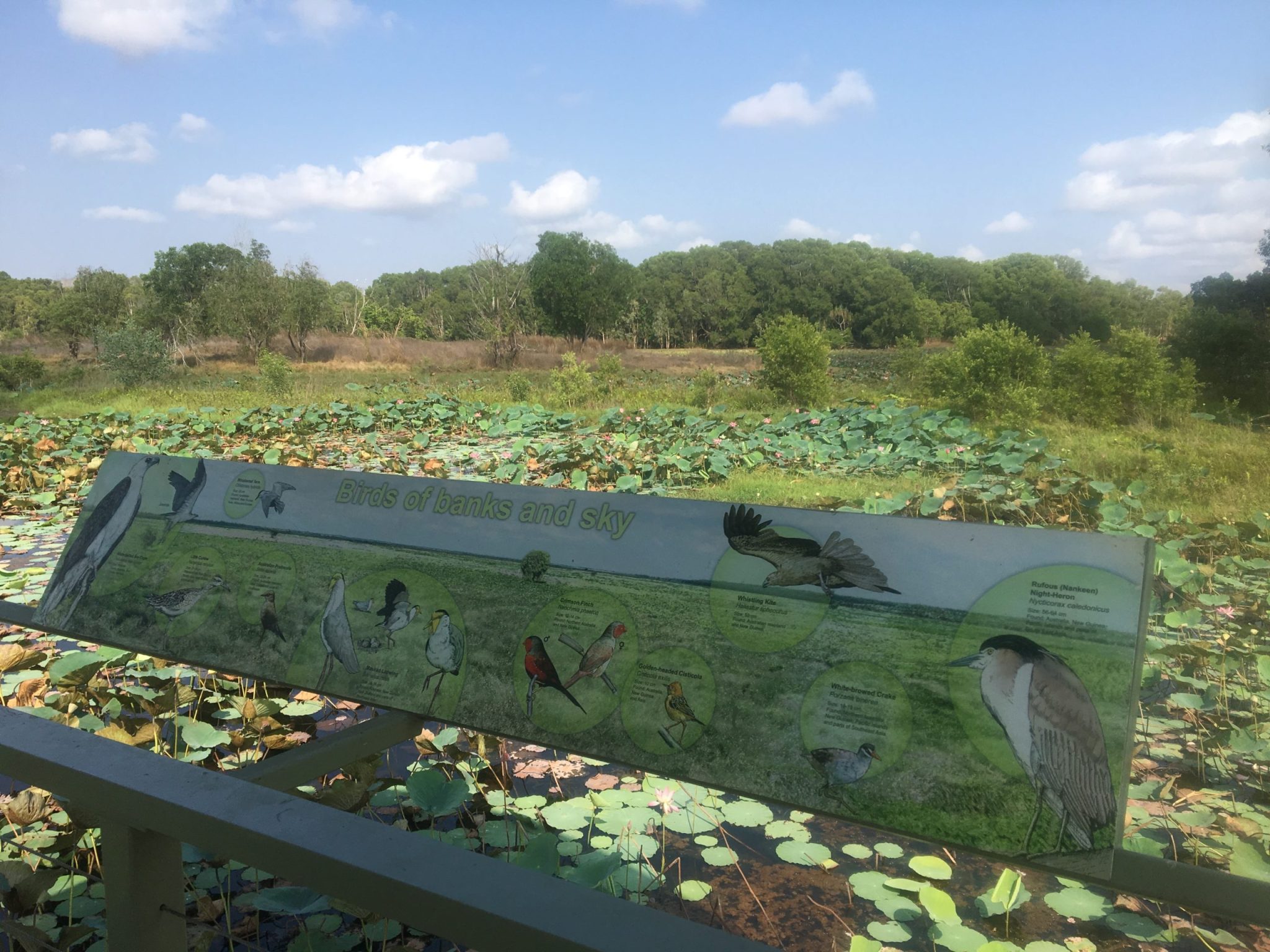
Many Victorians seem to have a newfound or at least increasing appreciation for nature following COVID-19 and the accompanying lockdown, perhaps because of the restrictions on the time we could spend outdoors and the distance we could travel. My personal flavour of nature-appreciation is birdwatching, something I apparently share with an increasing number of Melburnians. Although this interest of mine wasn’t born in Melbourne.
I began birdwatching in 2018 when I was living in Darwin. Everything there felt uniquely ‘Darwin’ – the people, the climate, the plants, the attitudes – but a big part of what made me feel like I was really somewhere different was the birdlife. As I became more familiar with the place, I figured out where I could go to visit my different bird friends. There was a corner of Bicentennial Park where I could find Orange-footed Scrubfowls tending to their mounds. I watched out for the dawdling Masked Lapwings on Casuarina Drive. And when I parked my car in the Royal Darwin carpark I would say a (non-mutually) enthusiastic good morning to the Bush-Stone Curlews (my favourite) before heading in to work. As the wet season approached, I could find more Magpie Geese, and I enjoyed watching those big birds balancing on the top of skinny palm trees. In paying attention to all of these birds, I felt like I was really noticing and appreciating the time and place that I was in, similar to Jenny Odell’s experience of what she refers to as ‘bird-noticing’ in her book ‘How to Do Nothing’1.
In lockdown in the Melbourne suburbs I’ve still managed to spot some birds, but they come to me. We’ve had butcherbirds, white-plumed honeyeaters, and yellow-tailed black cockatoos in our gum tree. I’ve been standing in the backyard with my binoculars, hoping that my neighbours in the nearby apartments don’t mistakenly think that I am watching them.
The pandemic has not exactly been a time of pause for this community of medical women, many of whom have been balancing increased workloads with home-schooling. Nevertheless, we have not been immune to the mental pause it has brought about. COVID-19 has caused us all to really think about and reflect upon the world in which we live.
Around the world, we have been demonstrating that we can change our habits and make sacrifices in the face of a crisis. In Australia, we have watched our Government show leadership, respect science, and take fast and decisive action in an emergency. We have thought about what is important to us and what we need to protect, with people’s health as a number one priority.
Many have drawn parallels between the COVID-19 and Climate Change crises, and have pointed out that we should not be so quick to forget the lessons we have learned from the former when addressing the latter. You have likely read (and may well have been involved in writing or sharing) this letter to the Prime Minister from Australia’s Doctors, which articulates these new lessons and opportunities brilliantly.
My personal concern for Climate Change predated my birdwatching. I was inspired to take my first actions after learning about the detrimental impact of Climate Change on human health as a medical student. These actions included meeting with my Member of Parliament, divesting my money to a bank that does not invest in fossil fuels, and joining Doctors for the Environment Australia. There are of course many actions that can be taken (outside of green consumerism and personal behaviour modification – which are great too). I have listed a few ideas below, although you may well do many if not all of these already.
My newfound appreciation and love of birds has inspired me all the more. As Jenny Odell put it, ‘To behold is to become beholden to’1. Many Australian birds face the threat of Climate Change, particularly those restricted to high altitudes and latitudes, those who nest on beaches or live in low-lying coastal areas, and many wetland birds who are dependent on fresh-water habitats2. An appreciation of what stands to be lost inspires action. For Rebecca Huntley, author of ‘How to Talk About Climate Change’, the catalysts for her activism was her concern for her children’s future3. She explains that what inspires this ‘transition from general concern about the environment to passionate connection to its protection’ will vary for everyone, and that therefore a ‘plurality of stories’ is needed3.
To that end, we would love to hear the climate stories of other VMWS members. How do you feel about Climate Change? How has that changed over time? What people, places, animals or events have made you engage with the issue? What actions have you taken, and what actions would you recommend?
If you would like to share your story in our newsletter please email me (VMWS Newsletter Editor) at [email protected]
THINGS YOU CAN DO:
- Join, follow and support organisations such as Doctors for the Environment Australia, Healthy Futures, and the Climate and Health Alliance.
- Divest: ask your superannuation provider to divest from fossil fuels and explain why. Switch banks, move your money away from investing in fossil fuels, write to your bank and let them know why you have moved your money. Market Forces has very useful information and advice on this.
- Engage with your Member of Parliament, be that via a personal email or a meeting. Let them know why you care and what you want them to do. Climate For Change have brilliant resources to assist you with this.
- And continue to march, vote, sign petitions, and talk about Climate Change.

References
- Odell, J. How to do nothing: Resisting the attention economy. Black Ink, Schwartz Books Pty Ltd; 2019.
- Olsen, P. The state of Australia’s birds 2007: Birds in a changing climate. Wingspan 14 (supplement). December 2007. Available from: https://www.environment.gov.au/biodiversity/threatened/publications/state-australias-birds-2007
- Huntley, R. How to talk about climate change: In a way that makes a difference. Murdoch Books, Allen & Unwin; 2020.